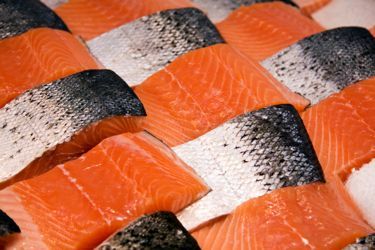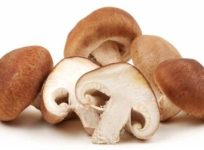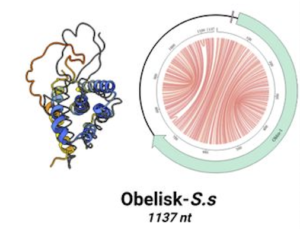AquaBounty has attempted to assuage such fears with the assurance that a number of barriers were put in place to decrease the likelihood of their fish escaping. Currently, AquAdvantage salmon eggs are produced in facilities on Prince Edward Island, Canada. The transgenic eggs are then shipped to Panama, where the fish are raised in land-based farms until they reach maturity. It is a tightly-controlled process which, AquaBounty claims, prevents their fish from ever reaching open waters.
However, while AquAdvantage salmon are presently raised in inland facilities, the company also claims that once its fish are approved for human use, it plans to market the eggs for purchase by other manufacturers. The FDA has yet to clearly determine how it will oversee distribution and handling of the genetically altered eggs on the open market.
Fish Fraud
As with other types of genetically modified food products, the lack of regulation surrounding the labeling of GE salmon is a major point of controversy and concern among consumers. When salmon farming skyrocketed, the marketplace was flooded with a cheap alternative to wild salmon and it became increasingly difficult for consumers to distinguish natural from farm-raised fish.
Despite significant differences between transgenic farmed fish and wild salmon, there is presently no requirement that requires producers or retailers of GM salmon to label the fish as such. Because wild salmon is more scarce—and likely to become even more so in the future– there is growing incentive for stores to inappropriately mislabel farmed salmon as a wild-caught variety, and to sell it at much higher prices.
This type of fraudulent mislabeling happens more often than we think; a 2011 report by marine conservation organization, Oceana, demonstrated that an appalling 50% of fish products tested were found to be a different species than what was indicated on their packaging
Adding to the difficulty of distinguishing farmed from wild salmon is their markedly similar appearance. Wild salmon derive their beautiful reddish-orange coloring from a compound called astaxanthin, which they consume in the form of krill and other natural foods in their diet. Farmed salmon are also red in color, but not naturally so – their feed contains a petrochemical-based synthetic version of astaxanthin, which artificially reddens their flesh to make it more appealing to consumers. Though referred to by the same name, the artificial astaxanthin is a different isomer than the natural version and can thus be easily identified via genetic testing.
Until the appropriate labeling of farm-raised GM salmon is mandated, it may be best to err on the side of caution by steering towards wild-caught varieties.
 Randy Hartnell, former commercial Alaska fisherman and president and founder of Vital Choice Wild Seafood & Organics, encourages consumers to ask seafood suppliers where their salmon comes from and how it was raised. To be sure that the fish is not genetically engineered, he not surprisingly recommends choosing wild-caught salmon or Alaska salmon, which is guaranteed to be wild.
Randy Hartnell, former commercial Alaska fisherman and president and founder of Vital Choice Wild Seafood & Organics, encourages consumers to ask seafood suppliers where their salmon comes from and how it was raised. To be sure that the fish is not genetically engineered, he not surprisingly recommends choosing wild-caught salmon or Alaska salmon, which is guaranteed to be wild.
Vital Choice, which sells only wild, sustainably-harvested salmon and other seafood, has grown each year since it opened — a sign, Mr. Hartnell believes, that people are generally moving towards healthier ways of eating. He notes that consumers are developing an awareness that “the closer to nature your food is, the better it is for you and the better it is for the planet,” and that the extra expense of products like wild-caught salmon ultimately outweighs the hidden costs of cheaper food alternatives.
If the FDA approves AquAdvantage salmon for human use, the global population will soon become the subject of an unprecedented experiment with our food supply. Overlooking sustainable methods for supporting the growth of wild and natural food resources, the floodgates will instead be opened for the addition of untold genetically engineered animal products into the food system. As science once again takes a backseat to the moneyed interests of the food industry, time will tell what unusual creatures may end up on our dinner tables in the future.
END
Kristen Schepker holds a Master’s degree in Integrative Health Studies from the California Institute of Integral Studies. She is a certified yoga instructor and holistic health and wellness coach practicing in San Francisco, CA.







